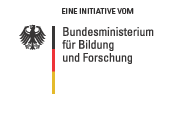Christoph Kaleta: Making data of bacteria
-
 <ic:message key='Bild vergrößern' />
<ic:message key='Bild vergrößern' />
- In July this year, Christoph Kaleta was appointed Junior Professor for Theoretical Systems Biology at the Friedrich Schiller University Jena. Quelle: FSU
15.10.2011 -
At 28 years old, he is the youngest Professor in the state of Thuringia: In July, Christoph Kaleta was appointed Junior Professor for Theoretical Systems Biology at the Friedrich Schiller University Jena. For his doctoral thesis, which was completed in March 2010, he was awarded a postdoctoral prize from the biological-pharmaceutical faculty at this year's Schillertag (Schiller day). In his work, the scientist has further developed methods that are aimed at a better understanding of the complex processes of metabolism. “In systems biology, it’s about understanding organisms at the system level. We don’t take in individual details, but keep the big picture in view,” says Kaleta. This involves staggering amounts of data; even a simple Escherichia coli bacteria is home to 4000 different genes. This is where the computer scientists, whose role it is to process the data, come into play.
Systems biology is the perfect science for the researcher from Weimar. “I actually wanted to study computer science, but that was somehow too dry for me,” he says. The life of a bioinformatics scientist, however, is a little more varied. Kaleta is currently exploring how organisms such as the ‘biologists pet’ Escherichia Coli have adapted to their environment over the course of evolution.
Bacteria as company engineers
In one of his projects, he is viewing bacteria as a commercial enterprise: “Ultimately, bacteria have to produce everything themselves, proteins for example. They have limited resources and must make do with what they find in their environment in order to reproduce. We are examining how these production processes take place under optimum conditions.” Thereby, Kaleta’s working group uses methods that indeed originate from production optimisation. The researchers observe single-celled organisms much like engineers strolling through factory buildings to improve manufacturing processes. Their objective is to find out whether methods from the business world can be of use in understanding bacterial processes.
Textbook view contradicted
Kaleta and his team recently succeeded in overturning 50 year-old textbook wisdom. “For a long time it was claimed that humans convert sugar into fatty acids, but not vice versa,” explains the researcher. “Back then, they only examined a small part of the human organism, where this process did not work.” The system biologists, on the other hand, placed the entire metabolic process under the microscope, and found that there are indeed ways of converting fatty acids back into sugar. “We have demonstrated this for ketogenic diets such as the Atkins diet, which involves eating above all meat and fish,” says Kaleta. Indeed, even Eskimos exist on an exclusive diet of proteins and fats. The metabolism produces the sugar required by the brain.
Kaleta’s team is now investigating the metabolic processes of aging at a system-biological level in the context of multidisciplinary age research project JenAge, which is funded by the Federal Ministry of Education and Research (BMBF). Other investigations by his team into Chlamydo onas reinhardtii – an algae that can conduct photosynthesis while growing in a normal culture medium – is likewise funded by the BMBF. Kaleta’s research group is hoping, among other goals, to improve the nitrate intake of the algae. In the long term, this could aid efforts to make contaminated farmland more fertile.
Junior Professor in his home university
Christoph Kaleta never really decided to become a scientist. “In bioinformatics, it’s common practice to do a doctorate. I also have great fun doing the research, it’s the best way for a junior professor to realise their own ideas.” The University of Jena, where he took up his attractive position, offers him this freedom; it is unusual for young post-docs to be able to stay at their local university. Foreign stays abroad are attractive in any up-and-coming scientist’s CV.
“I had the chance to stay at the Friedrich Schiller University. There’s a great working atmosphere here, and I can continue my research.” And he doesn’t see the junior professorship as an ‘inferior’ intermediate position between studies and his own professorship, but as an opportunity for development. In addition to research, teaching is very important to him. Even before starting work in his new position, Kaleta supervised a number of doctoral students, whereby he doesn’t feel that the minimal age difference is an issue: “I let them call my by my first name, otherwise I feel so old,” says the researcher, laughing.
The 28 year-old has worked for six months in a Research Institute in Paris, and gotten to know the more school-like French higher education system, where there is also less room for movement than in Germany. Furthermore, fixed places paid for by the universities are common in research. “The German system is dependent on third-party funds, which also unfortunately comes with a certain fluctuation and nomadism among employees. On the other hand, it also provides more freedom for implementing your own projects,” thinks Kaleta.
“Getting your the hands dirty”
The position for the young scientist is set for four yours; depending on performance, it can be extended by two years. Christoph Kaleta is striving for a proper professorship, but does not want to only coordinate future research projects, as is often the case with more experienced colleagues. “I get great enjoyment from getting my hands dirty,” explains the young researcher. He wants to remain on the ball, and actively conduct research.
Dealing all day with bacteria and data, one could easily forget ordinary life. “Sometimes it’s difficult to find off button, and to leave behind the work in the office,” he admits. But despite his ten-hour days in the workplace, the scientist finds enough time for friends and hobbies such as hiking and cycling. Last summer, he crossed the Alps with his girlfriend by touring bicycle.
Author: Fabienne Hurst


